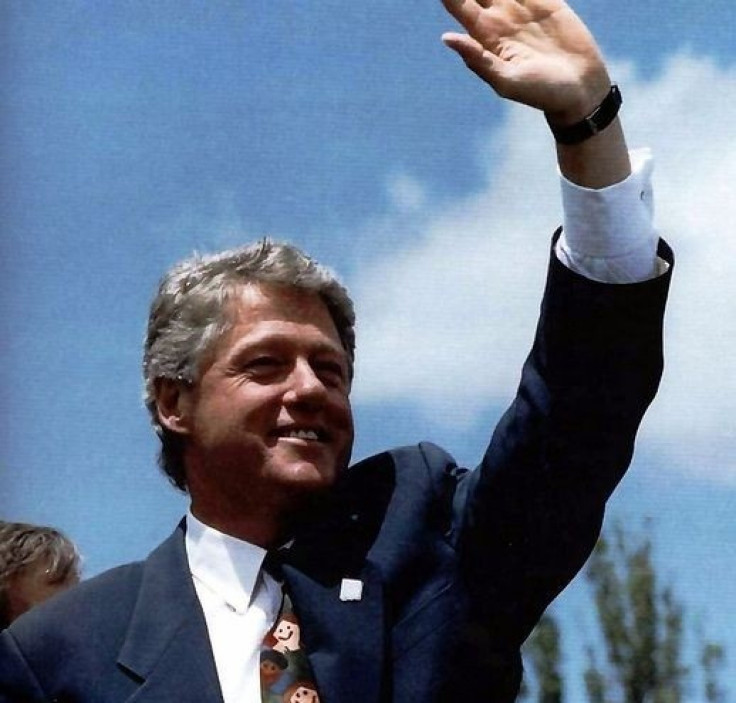Clinton Documentary: Was Monica Lewinsky Affair Self-Sabotage?

Clinton, the two-part American Experience documentary on PBS that examines the enigmatic 42nd president and his long-suffering wife Hillary, premiered Monday night. From the very beginning, director Barak Goodman raises the question of whether the scandals that nearly ruined Bill Clinton may have been an essential part of the game.
It's almost as if all of this were too easy for him, journalist Joe Klein says in the very first interview presented. It's almost as if he had to set up these barriers that he could then leap across, or stagger across -- but get across in any event -- always.
Despite an academic pedigree that suggests a privileged upbringing (Georgetown, Oxford, Yale Law), Bill Clinton had nothing guaranteed to him and everything to overcome. His biological father died in an accident three months before he was born, and his widowed mother eventually married an abusive alcoholic. Money was tight and life at home was turbulent and unstable -- a reality that Clinton kept well-hidden from friends and avoided himself with a full schedule of extracurriculars at school.
While acknowledging that on many levels he is an extraordinary man, the American Experience portrait strips Clinton down to his central pathology: The Freudian-esque insistence on repeating the cycle of chaos and challenge in order to prove, once again, that he can overcome any obstacle.
The Comeback Kid - Part One of Clinton - follows his early political ups and downs from Arkansas to Washington, with Hillary at his side every step of the way. From the start, Clinton's reputation as a womanizer threatened to unravel his political ambitions, and completely derailed his first attempt to enter the presidential race. The day before he intended to announce his bid for the Democratic nomination, his campaign manager Betsey Wright warned him that any of the women named on his long list of indiscretions could come forward and thrust his infidelities into the center of the campaign.
It just became clear that [it] was not the time to do it, Wright said. It was just not the time.
He felt for quite a while that that probably was the last real chance he would have to run for president, Wright continued. That was it, it was over. Where would he go now that he couldn't run for president? What could he do in the future?
What he did, of course, was successfully enter the 1992 presidential race following a period when Bill and Hillary's marriage hit rock bottom. Once again, accusations of infidelity - specifically, a documented affair with a heavily made-up lounge singer by the name of Gennifer Flowers - bedeviled team Clinton, but, again, Clinton managed to put the scandal behind him.
He had a harder time overcoming the Whitewater scandal, and said his decision to accept an independent counsel to investigate was the worst mistake of his presidency - worse, presumably, than the Monica Lewinsky affair and ensuing impeachment.
But of course, he ultimately overcame it all.
The central, repetitive theme of Bill Clinton's life is loss and recovery, Clinton biographer David Maraniss said. Never count him out, because always, he will find his way back.
The Lewinsky affair will take center stage when Clinton comes back tonight on PBS, though Lewinsky herself was not interviewed.
Part One is available for viewing on the PBS Web site.
© Copyright IBTimes 2024. All rights reserved.












